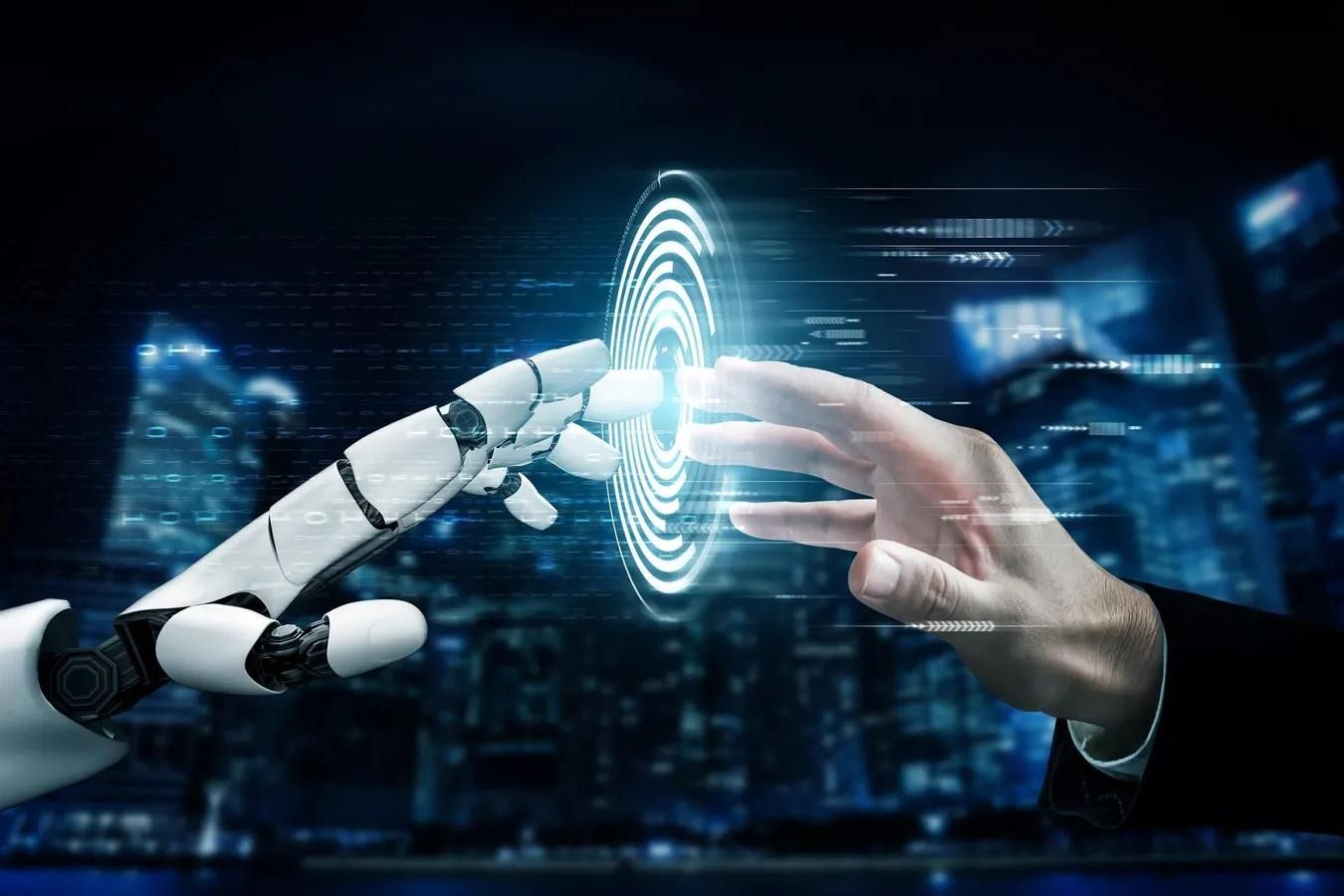

Artificial intelligence is revolutionizing the tech industry, transforming how we work and live. Let’s learn more about this topic below with Unicycle Hero, as we explore the far-reaching impacts of AI across various sectors and its potential for future innovation.
The rapid advancement of artificial intelligence (AI) has become a driving force behind transformative changes in the technology industry. From enhancing user experiences to optimizing business operations, AI is reshaping the landscape of innovation and productivity.
As AI continues to evolve, it’s crucial to understand its implications and potential applications across various sectors. This article will delve into the ways AI is revolutionizing the tech industry, exploring its impact on different areas and discussing the challenges and opportunities it presents.
Artificial intelligence has emerged as a game-changer in the tech industry, with its ability to process vast amounts of data and perform complex tasks at unprecedented speeds. Companies are increasingly incorporating AI into their products and services to gain a competitive edge.
One of the key drivers behind the adoption of AI is its potential to automate repetitive tasks and streamline processes. This has led to increased efficiency and productivity across various industries, from manufacturing to healthcare.
AI-powered chatbots and virtual assistants have become commonplace in customer service, providing instant support and improving user experiences. These intelligent systems can handle multiple queries simultaneously, reducing wait times and enhancing customer satisfaction.
The integration of AI in software development has also accelerated the pace of innovation. Machine learning algorithms can analyze code, identify bugs, and suggest improvements, leading to faster and more efficient development cycles.
As AI continues to evolve, we can expect to see even more groundbreaking applications in the tech industry. Unicycle Hero is at the forefront of these developments, exploring new ways to harness the power of AI for innovative solutions.
The influence of AI extends far beyond the tech industry itself, transforming various sectors and reshaping traditional business models. Let’s explore some of the key areas where AI is making a significant impact:
In the healthcare sector, AI is revolutionizing diagnosis, treatment, and patient care. Machine learning algorithms can analyze medical images with remarkable accuracy, assisting radiologists in detecting abnormalities and improving early diagnosis.
AI-powered predictive analytics are helping healthcare providers identify high-risk patients and implement preventive measures. This proactive approach can lead to better health outcomes and reduced healthcare costs.
Drug discovery is another area where AI is making significant strides. By analyzing vast amounts of data, AI algorithms can identify promising drug candidates and accelerate the development process, potentially saving years of research time.
Personalized medicine is becoming a reality thanks to AI. By analyzing a patient’s genetic profile and medical history, AI can help doctors tailor treatments to individual needs, improving efficacy and reducing side effects.
The financial sector has embraced AI to enhance decision-making, risk assessment, and fraud detection. AI-powered algorithms can analyze market trends and predict fluctuations with remarkable accuracy, helping investors make informed decisions.
Robo-advisors are gaining popularity in wealth management, offering personalized investment advice based on individual risk profiles and financial goals. These AI-driven platforms provide cost-effective solutions for a wide range of investors.
Fraud detection has become more sophisticated with the integration of AI. Machine learning algorithms can identify unusual patterns and flag potentially fraudulent transactions in real-time, protecting both financial institutions and their customers.
AI is also streamlining loan approval processes by analyzing credit histories and other relevant data points. This has led to faster decision-making and improved access to credit for underserved populations.
In the manufacturing sector, AI is driving the Fourth Industrial Revolution, also known as Industry 4.0. Smart factories equipped with AI-powered systems can optimize production processes, predict maintenance needs, and reduce downtime.
Predictive maintenance is one of the key applications of AI in manufacturing. By analyzing data from sensors and equipment, AI can predict when machinery is likely to fail, allowing for proactive maintenance and minimizing costly breakdowns.
Quality control has been significantly enhanced through the use of AI-powered computer vision systems. These systems can detect defects and inconsistencies in products with greater accuracy and speed than human inspectors.
Supply chain management has also benefited from AI integration. Machine learning algorithms can analyze historical data and market trends to optimize inventory levels, reduce waste, and improve overall efficiency.
While the potential benefits of AI are immense, its widespread adoption also presents several challenges that need to be addressed. Let’s explore some of these challenges and the opportunities they present:
As AI systems rely heavily on data, ensuring the privacy and security of sensitive information has become a critical concern. Companies must implement robust data protection measures to maintain user trust and comply with regulations.
The challenge of data privacy presents an opportunity for innovation in secure AI systems. Techniques like federated learning and differential privacy are being developed to enable AI training without compromising individual data.
Blockchain technology is being explored as a potential solution for secure and transparent data sharing in AI applications. This could lead to new paradigms in data ownership and control.
The rapid advancement of AI raises important ethical questions about its impact on society, employment, and decision-making processes. Addressing these concerns is crucial for responsible AI development and adoption.
There is a growing need for ethical guidelines and frameworks to govern AI development and deployment. This presents an opportunity for collaboration between tech companies, policymakers, and ethicists to shape the future of AI.
Ensuring fairness and reducing bias in AI algorithms is a significant challenge. This has led to increased research in developing more inclusive and equitable AI systems, potentially benefiting underrepresented groups.
The widespread adoption of AI is creating a demand for new skills and expertise. There is a growing need for professionals who can develop, implement, and manage AI systems across various industries.
This skills gap presents an opportunity for educational institutions and training programs to develop curricula focused on AI and related technologies. Reskilling and upskilling initiatives can help prepare the workforce for the AI-driven future.
As AI automates certain tasks, there is concern about job displacement. However, this also creates opportunities for new roles and industries centered around AI development, maintenance, and oversight.
As we look to the future, it’s clear that AI will continue to play a pivotal role in shaping the tech industry. Here are some trends and developments we can expect to see in the coming years:
Edge AI is gaining traction, bringing AI capabilities closer to end-users and devices. This will enable faster processing, reduced latency, and improved privacy for AI applications in various sectors.
The integration of AI with other emerging technologies like 5G, IoT, and quantum computing will unlock new possibilities. This convergence will lead to more powerful and sophisticated AI systems capable of tackling complex challenges.
Explainable AI (XAI) is becoming increasingly important as AI systems are deployed in critical decision-making processes. Developing AI models that can provide clear explanations for their decisions will be crucial for building trust and accountability.
AI-driven automation will continue to expand, transforming industries and creating new opportunities. This will lead to increased productivity and efficiency, but also require careful management of workforce transitions.
The development of more advanced natural language processing (NLP) models will enable more sophisticated human-AI interactions. This could revolutionize areas such as customer service, education, and accessibility.
AI in healthcare will continue to advance, potentially leading to breakthroughs in drug discovery, personalized medicine, and early disease detection. This could significantly improve health outcomes and reduce healthcare costs.
The ethical use of AI will remain a critical focus, with increased efforts to develop responsible AI practices and regulations. This will involve ongoing collaboration between tech companies, policymakers, and ethicists.
As AI becomes more prevalent, there will be a growing emphasis on AI literacy and education. Understanding the basics of AI will become increasingly important for individuals across various professions and industries.